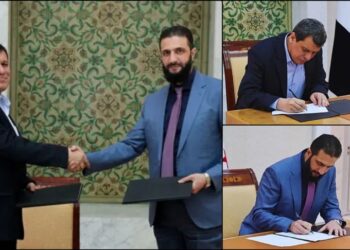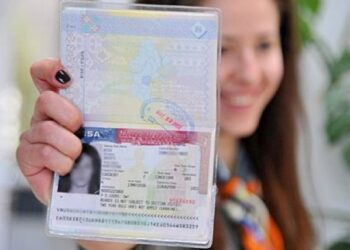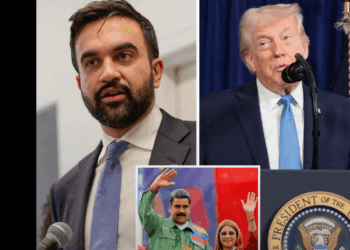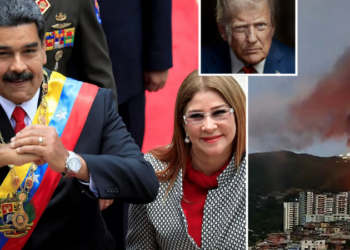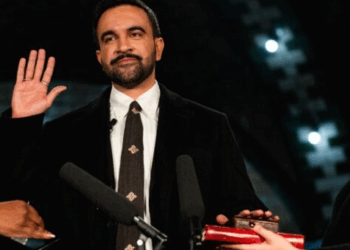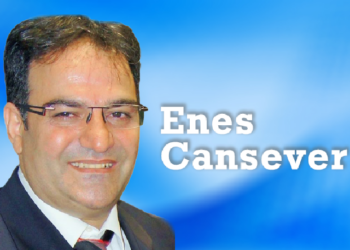The report said 1,877,000 students competed in the second season of the university entrance exam and that the students only managed to give correct answer to 3,9 out of 40 mathematics questions on average. Only 0,4 out of 14 physics questions were answered correctly.
Despite this catastrophic failure of the education system in Turkey, the Erdoğan regime has tried to export its Islamist ideology through the seizure of educational facilities affiliated with the Gülen movement abroad, especially in Africa, through the efforts of the two-year-old Maarif Foundation.
Birol Akgün, the head of Erdoğan’s Maarif Foundation, stated in an interview that 97 schools affiliated with the Gülen movement abroad have been seized by the foundation.
“Some 250 FETÖ-affiliated schools are located in European countries along with the US and Australia. Most of these countries don’t lean toward ceding control of these schools to us; however, we have liberated 60 percent of the remaining 450 schools located elsewhere through assuming control, nationalization by the country they’re located in or transferring control to a third party,” Akgün told Daily Sabah.
“FETÖ” is a derogatory term coined by ruling AKP to refer to the Gülen movement.
According to Akgün, the Maarif Foundation has signed protocols with 28 countries that will allow the foundation to take control of schools affiliated with the Gülen movement and to open new schools. Since its establishment, the foundation has made official contact with 90 countries, appointed directors to 40 countries so far and currently runs 101 schools.
In 12 countries, including Niger, Chad, Somalia and Sudan, 94 schools affiliated with the Gülen movement with more than 10,000 students have been seized by the Maarif Foundation with the help of the corrupt governments of those countries.
Akgün stated that most Western countries refuse to allow the Maarif Foundation to seize schools affiliated with the Gülen movement, adding that 97 out of approximately 700 schools in 108 countries have been taken over.
The Erdoğan regime has spent millions of dollars in aggressively promoting the AKP’s political Islamist ideology abroad and spreading the extremist and divisive “Erdoğan brand.” In one of his articles, Abdullah Bozkurt, president of the Stockholm Center for Freedom (SCF), stated that “[in] addition to building mosques and launching cultural centers and development offices that have no real purpose other than the proselytizing efforts of Turkish Islamists, Erdoğan has created a giant educational foundation called Maarif with a special law he pushed through Parliament in June 2016. The funds and resources were generously provided from the Treasury at the expense of taxpayers, while full diplomatic clout was bestowed on the foundation’s chief executives, who apparently have close connections to controversial Islamist groups in Turkey.”
“Erdoğan posits himself to be the caliph, the leader of all Muslims in the world, and sees the Maarif Foundation as a tool in his investment efforts to reach out to non-Turkish Muslim groups. He hopes that he can raise a generation of loyalists on foreign soil in his endeavor to enlist new recruits. Just like he has diverted billions of dollars that were earmarked for secular public education to religious public and private schools in Turkey, Erdoğan tries to achieve the same abroad by investing heavily in schools, mosques and cultural centers in foreign countries. He personally lobbies for that when he goes abroad during state visits or when he receives heads of government or state at his lavish palace in Ankara.”
Bozkurt added that “defending the bill on the Maarif Foundation in Parliament on June 16, 2016, İsmet Yılmaz, the education minister, emphasized that the foundation was owned by the state and would serve as his ministry’s arm abroad in providing educational services. He described the initiative as proof of the Turkish state’s ambition to project greater power in the world and maintained that Turkey follows in British and American footsteps in that sense. He said the foundation would operate in places from ‘the Balkans to Eastern Turkistan [China’s Xinjiang Uyghur Autonomous Region] and from Somalia to Canada.’”
The management structure of Maarif is entirely controlled by President Erdoğan, who has the power to appoint four members of the 12-member board of trustees, the executive decision-making body of Maarif, directly, and three members thorough the Cabinet, which he chairs. These seven members are considered to be standing members while the rest were described as representatives who will be selected from the ministries of foreign affairs and finance as well as the Higher Educational Board (YÖK). In other words, Erdoğan not only appoints key members to the board but also reduces the profile of bureaucrats who will represent relevant public institutions on the board. The seven members also form the board of directors, which manages the daily business of the foundation.
Article 4 of the law governing Maarif also granted administrators of the foundation the right to carry diplomatic passports and provided them with rights and privileges equivalent to a diplomatic attaché. Since they can serve until the age of 72, these Islamist operatives can freely travel all over the world under diplomatic cover. The teachers and school principals employed by Maarif will be treated as government officials who are tasked with overseas assignments and will benefit from all privileges awarded to such officials under Turkish passport law.
Akgün, the chairman of the Maarif Foundation, had stated in an interview with the state-run Anadolu news agency on Sept. 23, 2017 that the foundation has been working abroad within the framework of Turkey’s strategic priorities by consulting with relevant ministries and other state institutions.
The crackdown on critical thinking in Turkey with an unprecedented witch hunt targeting teachers, academics and other professionals in the education sector has dealt a huge blow to free thought in Turkey, according to a report released by SCF.
The government of President Erdoğan has jailed some 20,000 instructors and arbitrarily fired 34,185 public school teachers and 5,719 academics including professors from state universities within the last two years alone. They were branded as “terrorists” and “coup plotters” without any effective administrative or judicial probe and as such marked for life.
The government shut down 1,069 privately run schools, most of which were the nation’s best performing science schools and were affiliated with the Gülen movement, and closed down 15 universities that were run by privately held foundations. As a result, 2,465 academics and 54,350 teachers instantly became unemployed. With the support staff who worked in these schools, the total number of people who lost their jobs reached 65,214. The government also cancelled the licenses of 22,474 teachers, making it impossible for them to continue working as teachers in other institutions.
In total, 96,719 teachers and academics were purged from Turkey’s public and private educational institutions. This number does not include the support staff that was hired to run schools and universities in administrative and other capacities.
Most of the shuttered institutions were transformed into religious schools that are designed to raise a new generation of Islamist supporters for Erdoğan’s AKP.
When all the closed institutions are taken into account, the total loss in value including fixed property and land is around $100 billion, one source estimates. The crackdown included foreign students who came to Turkey for study or Turkish students who were sent abroad on government scholarships.









